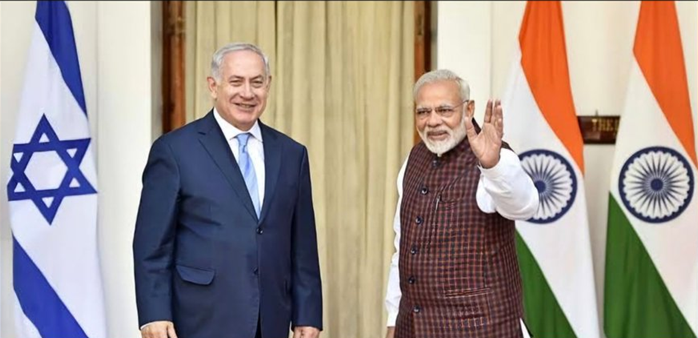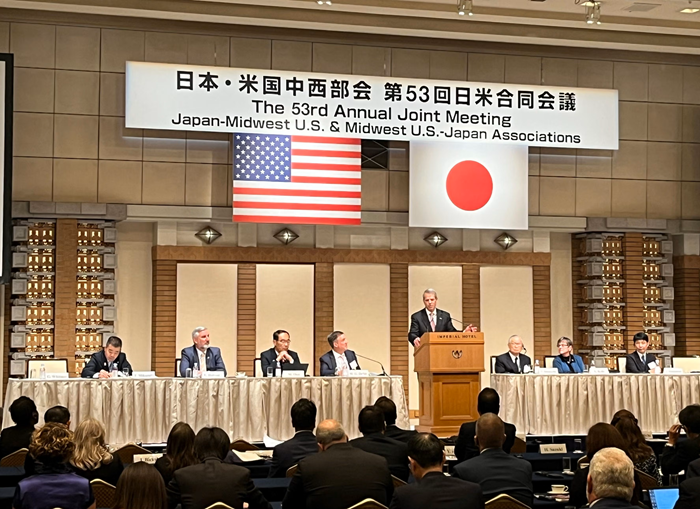1. UK Trade Envoy visits Nigeria
In a significant move to bolster bilateral trade and investment, Florence Eshalomi MP, the UK Trade Envoy to Nigeria, concluded a four-day strategic visit aimed at deepening economic ties between the United Kingdom and Nigeria. The visit reaffirmed the UK’s commitment to the UK-Nigeria Enhanced Trade and Investment Partnership, with a focus on unlocking opportunities across fintech, agriculture, and manufacturing.
Accompanied by senior officials including Ceri Smith, Director-General for Investment at the UK Department for Business and Trade, and Ben Ainsley, His Majesty’s Deputy Trade Commissioner to Africa, Eshalomi engaged in high-level meetings with Nigerian government officials and private sector leaders. The delegation emphasised inclusive growth and sustainable development as core pillars of the partnership.
A key highlight of the visit was the ETIP Business Dialogue, co-hosted with the British Deputy High Commissioner in Lagos, Jonny Baxter, and Nigeria’s Federal Ministry of Industry, Trade and Investment. The forum brought together UK and Nigerian business leaders to address non-tariff barriers and propose policy reforms to improve the investment climate.
One of the most notable outcomes was the announcement of a $7.5 million investment by British International Investment into Babban Gona, a leading Nigerian agri-tech enterprise. This funding is expected to enhance food security, create jobs, and strengthen economic resilience in Nigeria’s agricultural sector.
The Trade Envoy also held bilateral talks with executives from LemFi, Interswitch, and Zenith Bank, exploring avenues to deepen financial sector collaboration and facilitate Nigerian IPOs on the London Stock Exchange. These discussions are part of broader efforts to integrate Nigerian businesses into global capital markets.
In support of Nigeria’s vibrant tech ecosystem, Eshalomi participated in a Tech Roundtable, connecting Nigerian founders with the UK’s Global Entrepreneurs Programme (GEP). The session showcased the UK’s investment landscape and its support for startups aiming to scale internationally.
The visit culminated in a strong UK presence at GITEX Nigeria 2025, where Eshalomi moderated a panel titled “Nigeria’s Fintech Revolution: From Local Champions to Global Contenders”, featuring fintech leaders Kuda Bank and PiggyVest—both of which are expanding globally with UK support.
Speaking at the close of her visit, Eshalomi described Nigeria as a “powerhouse of innovation and enterprise”, reaffirming the UK’s role as a strategic partner in Nigeria’s growth journey. She emphasised that the partnership is not just about trade, but about delivering inclusive impact across sectors that matter most to both nations.
2. Vietnam $14bn trade surplus 2025

Georgios Domouchtsidis via Unsplash
Vietnam’s economy continues to demonstrate robust growth, recording a trade surplus of $13.99 billion from January to August 2025, according to the General Statistics Office under the Ministry of Finance. This marks a significant achievement amid global economic uncertainties and reflects the country’s strong export performance and resilient industrial base.
Strong Trade Performance
During the first eight months of the year, Vietnam’s total trade turnover reached $597.93 billion, a 16.3% year-on-year increase. Exports rose 14.8% to $305.96 billion, while imports climbed 17.9% to $291.97 billion.
In August alone, exports hit $43.39 billion, up 2.6% from July and 14.5% compared to August 2024. The foreign-invested sector, including crude oil, remained dominant, contributing $34.22 billion in August and $229.27 billion over the eight-month period—accounting for nearly 75% of total exports.
Export Highlights
Vietnam’s export structure continues to be led by manufactured and processed goods, which generated $271.06 billion, or 89% of total exports. Other key contributors included:
- Agricultural and forestry products: $25.92 billion
- Seafood: $7.15 billion
- Fuel and minerals: $1.83 billion
Notably, 29 export items surpassed the $1 billion mark, with seven products—including phones, electronics, and garments—each exceeding $10 billion.
Import Trends
Imports in August were estimated at $39.67 billion, slightly down from July. Over the eight months, 38 import items exceeded $1 billion in value. Vietnam spent $273.91 billion on production materials, representing 94% of total imports, with machinery and raw materials making up the bulk.
Key Trade Partners
The United States remained Vietnam’s largest export market, with shipments valued at $99.1 billion, resulting in a $87 billion trade surplus, up 26.8% year-on-year. The European Union followed with a $25.6 billion surplus, while Japan accounted for $1.5 billion.
Conversely, Vietnam ran trade deficits with:
- China: $75.9 billion
- South Korea: $20.1 billion
- ASEAN countries: $9.4 billion
Broader Economic Indicators
Vietnam’s economic momentum was further supported by a 27.3% rise in registered foreign direct investment, totaling $26.14 billion, and a 15.7% increase in new business registrations. Industrial output grew 8.5%, with standout sectors including motor vehicles, rubber and plastics, garments, and food processing.
The country also saw a 21.7% increase in international tourist arrivals, reaching 13.9 million, and a 9.4% rise in retail sales, underscoring a broad-based recovery across sectors.
3. India-Israel to sign investment treaty

India and Israel are poised to deepen their economic partnership with the signing of a Bilateral Investment Treaty and the advancement of negotiations on a Free Trade Agreement during the upcoming visit of Israeli Finance Minister Bezalel Smotrich, scheduled from September 8 to 10.
Smotrich’s visit marks a significant milestone in Indo-Israeli relations, with meetings lined up with key Indian officials including Finance Minister Nirmala Sitharaman, Commerce and Industry Minister Piyush Goyal, and Housing and Urban Affairs Minister Manohar Lal Khattar. The Israeli delegation will also visit Mumbai and GIFT City in Gandhinagar, India’s premier International Financial Services Centre.
Bilateral Investment Treaty: A New Chapter
The BIT, whose negotiations have been concluded, is expected to be signed during Smotrich’s visit. It aims to provide legal protection and a stable investment environment for investors from both countries. Key provisions include:
- Minimum standard of treatment
- Non-discrimination
- Independent dispute resolution through arbitration
This treaty reflects a shared commitment to fostering a robust and resilient investment climate, and is expected to boost investor confidence and increase bilateral investments.
Israel has previously signed BITs with over 15 countries, including the UAE, Japan, and South Africa, and views India as a strategic partner with vast market potential and complementary strengths in technology and innovation.
Free Trade Agreement: Laying the Groundwork
While the BIT is set to be formalised, the visit will also lay the foundation for FTA negotiations, aimed at enhancing trade flows and reducing barriers. Bilateral trade between India and Israel currently stands at approximately USD 4 billion annually, with cumulative Indian ODI to Israel at USD 443 million, and Israeli FDI into India at USD 334.2 million over the past 25 years.
Fintech and Strategic Collaboration
The visit will spotlight fintech collaboration, leveraging India’s digital infrastructure (like UPI) and Israel’s expertise in cybersecurity, blockchain, and payment technologies. GIFT City is expected to play a pivotal role in this partnership, offering world-class infrastructure and incentives for financial institutions.
Both nations are also exploring joint initiatives in third countries, particularly in the Global South, through co-financing of Multilateral Development Bank-backed projects.
Strategic Momentum
This marks the fourth visit by an Israeli minister to India in 2025, underscoring the strategic momentum in bilateral ties. Previous visits included ministers of Tourism, Economy, and Agriculture, signaling a broad-based engagement across sectors.
4. Governor Pillen heads to Japan for trade talks

Nebraska Governor Jim Pillen is currently leading a high-level trade delegation to Japan, aiming to strengthen economic ties and promote the state’s agricultural and biofuel industries. The mission, which runs from September 5 to 9, includes representatives from the Nebraska Department of Agriculture, Department of Economic Development, Greater Omaha Chamber of Commerce, Union Pacific, and key players in the state’s agriculture and manufacturing sectors.
Governor Pillen’s itinerary features meetings with Japanese governors and defense ministers, as well as a keynote address at the annual U.S. Midwest-Japan Association Conference in Tokyo. A central focus of the mission is promoting Nebraska’s ethanol industry, which aligns with Japan’s newly announced plans to increase ethanol blends in its fuel supply — targeting 10% by 2030 and 20% by 2040.
“Nebraska is perfectly positioned to be a trusted biofuels supplier,” said Governor Pillen. “Our advanced carbon capture infrastructure allows us to produce ethanol more sustainably than anywhere else in the U.S.”
Japan is already a major market for Nebraska’s agricultural exports. In 2024 alone, Nebraska exported $397 million in beef and $177 million in pork to Japan. The country is also a leading buyer of Nebraska eggs, corn, soybeans, and wheat. More than 60 Japanese companies operate in Nebraska, employing over 4,000 residents. Notable firms include Kawasaki in Lincoln, Kyocera in Omaha, and S-Foods in Fremont.
The delegation will also visit Kawasaki’s facilities to express appreciation for the company’s continued investment in Nebraska. In addition to commercial goals, the mission celebrates cultural and educational ties, including the 60th anniversary of the sister city relationship between Omaha and Shizuoka, and a 40-year academic partnership between the University of Nebraska-Lincoln and Senshu University.
In June 2025, the University of Nebraska Medical Center signed a memorandum of understanding with the Japan Institute for Health Security, reinforcing a collaboration that began in 2016 during Japan’s study of UNMC’s response to the Ebola outbreak.
Governor Pillen’s trade mission underscores Nebraska’s commitment to global partnerships and its readiness to meet Japan’s evolving energy and food security needs.
5. 3TOP Aviation funded by UKEF

A Surrey-based aviation company is flying high after securing a £20 million investment backed by UK Export Finance, marking a significant milestone in the region’s aerospace sector.
3TOP Aviation, headquartered in Leatherhead, has received a loan guarantee under UKEF’s General Export Facility, enabling HSBC UK to provide a trade finance facility to support the company’s ambitious international expansion plans.
Specialising in the acquisition, refurbishment, and trading of mid-to-end-life aircraft and engines, 3TOP Aviation plays a vital role in the sustainable transformation of the aerospace industry. The company dismantles aircraft and rebuilds components for resale, helping reduce waste and extend the lifecycle of aviation assets.
With over 25 years of industry expertise and a global footprint spanning the UAE, United States, Singapore, Germany, and India, 3TOP Aviation has seen remarkable growth. From a post-COVID revenue low of £3 million in 2021, the company has soared to £70 million in turnover by 2025.
The UKEF-backed funding will allow 3TOP Aviation to:
- Expand its UK workforce by 20%
- Relocate international warehouses to a larger site in Leatherhead
- Enter new global markets and product lines, including next-generation aircraft
Chris Emechete, Managing Director of 3TOP Aviation, expressed enthusiasm about the deal:
“We are delighted to have secured substantial funding from UKEF, which strengthens our position as a leading UK exporter of commercial aircraft aftermarket services and allows us to further exploit new opportunities around the world.”
Government officials have hailed the investment as a key part of the UK’s “Plan for Change,” aimed at boosting manufacturing, exports, and local economies. Gareth Thomas, Minister for Exports, noted:
“This investment shows how we are removing barriers to trade, unleashing the UK’s exporting potential, to bring jobs, growth, and investment back to local economies like Leatherhead.”
Tim Reid, CEO of UK Export Finance, added:
“3TOP Aviation’s story shows how our support empowers UK businesses to create prosperity at home while growing their footprint internationally.”
This announcement comes on the heels of UKEF’s record-breaking year, with £14.5 billion in new financing provided to over 667 UK companies, supporting up to 70,000 jobs.
As 3TOP Aviation continues to scale, its success underscores the transformative impact of strategic financial support in propelling British aerospace innovation onto the global stage.







